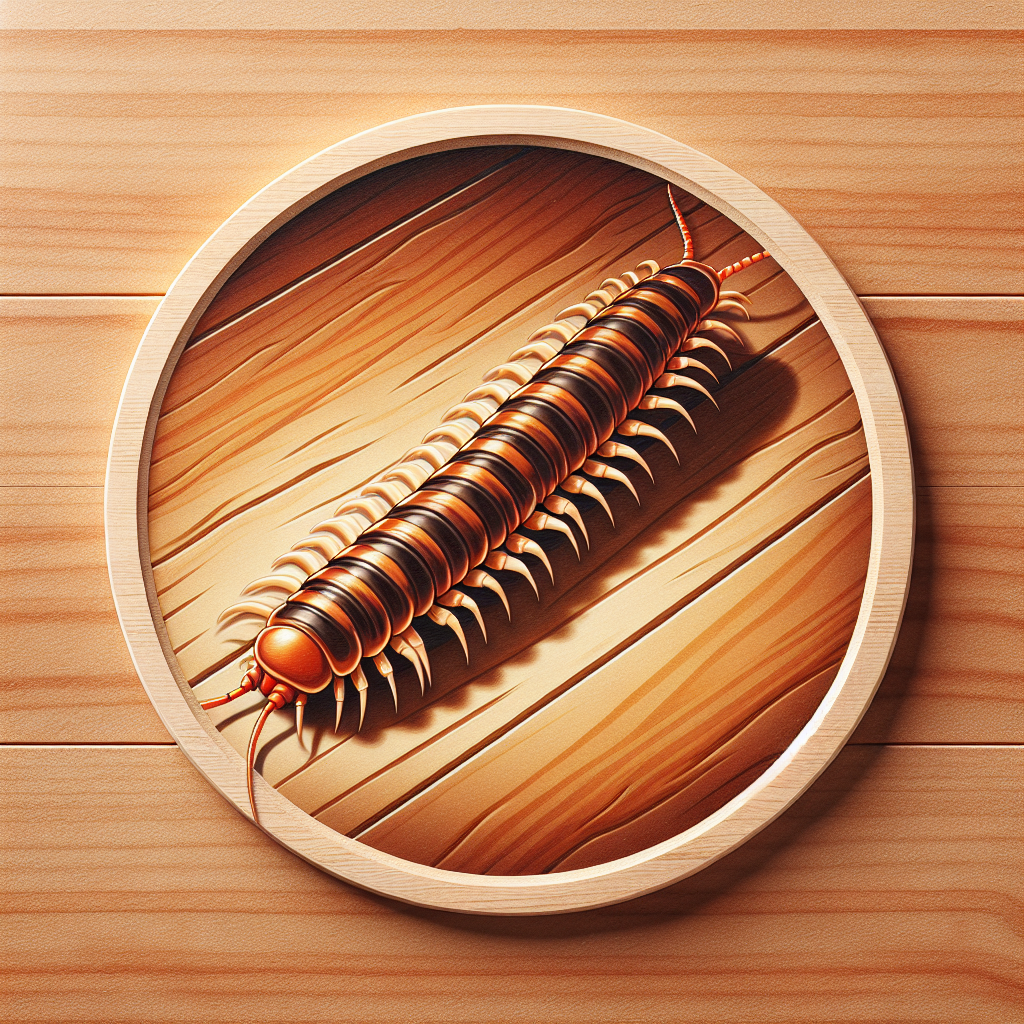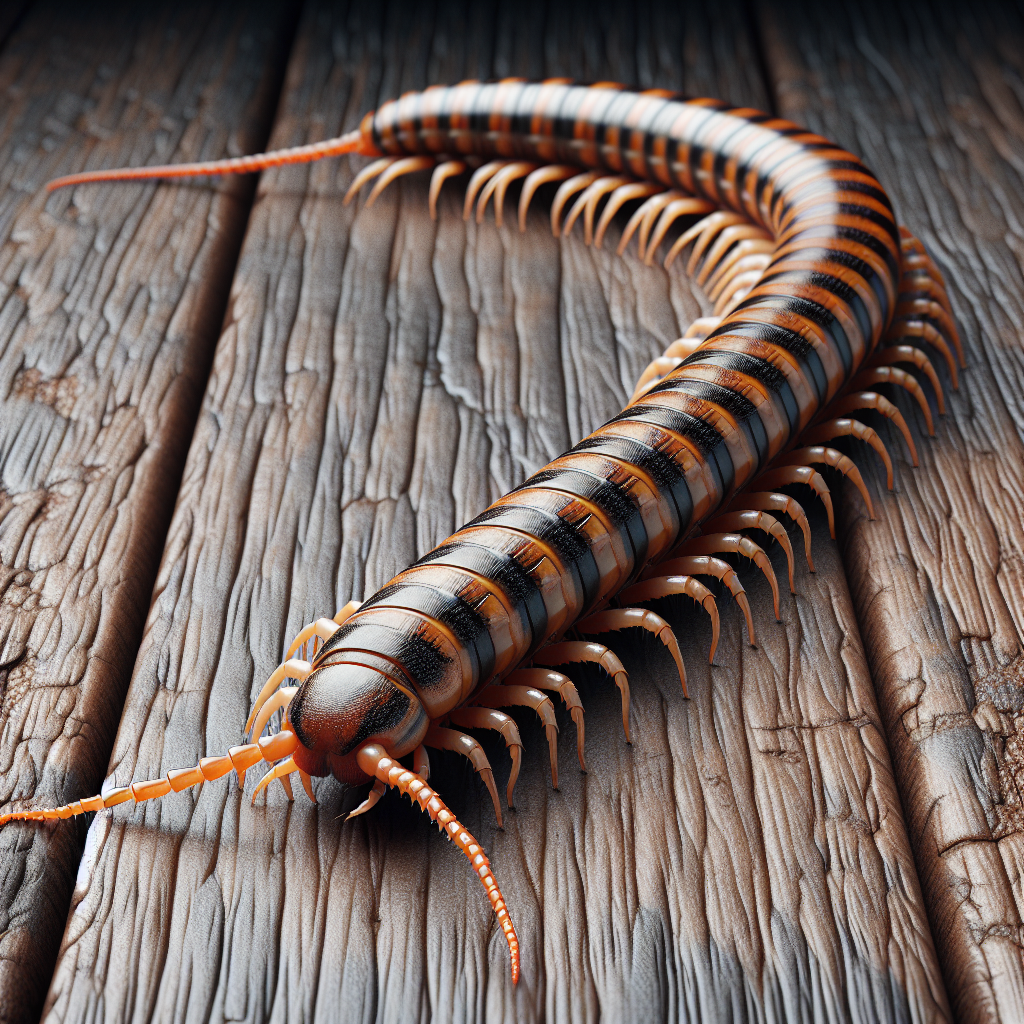The Truth About House Centipedes: When to Call an Expert
Introduction
So, you’ve spotted a house centipede scuttling across your floor like it’s auditioning for a horror movie? Don’t panic! These little critters might look like they’ve crawled straight out of your worst nightmares, but they’re not as terrifying as they seem. In fact, house centipedes are more like the quirky, misunderstood relatives of the insect world. They might even be helpful in keeping other pests at bay!
However, if you find yourself sharing your living space with these speedy little guys more than you’d like, it might be time to consider some house centipede removal strategies. In this post, we’ll dive into everything you need to know about house centipedes from understanding their behavior and spotting an infestation to exploring effective methods for centipede pest control.
Did you know? House centipedes can live up to 5 years and can lay up to 100 eggs in a single go! This makes them quite the resilient pest if left unchecked.
If you’re wondering how to get rid of house centipedes effectively or when it’s time to call in a professional, you’re in the right place. Whether you’re looking for natural remedies or considering hiring a house centipede exterminator, we’ve got you covered with all the insights and tips you need.
Ready to tackle that house centipede problem head-on? Let’s dig in!

Understanding House Centipedes
If you’ve ever spotted a house centipede scuttling across your floor, you might have felt a mix of fascination and horror. These little critters are like the ninjas of the insect world quick, sneaky, and surprisingly effective hunters. But what exactly are house centipedes, and why do they seem to crash our home parties uninvited?
What are House Centipedes?
House centipedes, scientifically known as Scutigera coleoptrata, are long-legged arthropods that can grow up to 1.5 inches in length. They sport a unique appearance with elongated bodies and numerous pairs of legs up to 30! Think of them as the octopi of the insect world, but instead of eight arms, they’ve got an arsenal of legs that help them dart around with impressive speed.
Common Characteristics and Behavior
These critters thrive in damp environments, making your basement or bathroom their ideal hangout spots. They have a penchant for darkness and tend to come out at night for their late-night snack runs. And what’s on the menu? Other pesky bugs! House centipedes are voracious predators that feast on spiders, ants, and other small insects so they might actually be doing you a favor (albeit in a rather creepy way).
Why They Invade Homes
You might be wondering: why do these little guys decide to move in? Well, it’s all about comfort and convenience. Your cozy home offers warmth, moisture, and an abundant food supply basically a buffet for house centipedes! If you’re experiencing humidity issues or have other pests lurking around, it’s like putting out the welcome mat for these speedy invaders.

Identifying a Centipede Infestation
So, you’ve spotted a centipede scurrying across your floor, and now you’re left wondering if it’s time to call in the cavalry. Identifying a house centipede infestation is the first step in tackling this eight-legged conundrum. Here’s how to know if you’re dealing with a house centipede problem or just the occasional visitor.
Signs of a House Centipede Problem
- Frequent Sightings: If you see these little critters more than once or twice, it’s likely that they’ve set up camp.
- Shed Exoskeletons: House centipedes molt as they grow, leaving behind exoskeletons that can be a telltale sign of their presence.
- Droppings: Tiny black specks similar to those of other household pests can indicate an infestation.
Differences Between Centipedes and Other Household Pests
Centipedes are often mistaken for other creepy crawlies. Here’s how to tell them apart:
- Appearance: Centipedes have long, segmented bodies with one pair of legs per segment, while millipedes have two pairs.
- Movement: House centipedes are fast and agile, darting away when disturbed, unlike slower pests like silverfish.
- Diet: Unlike many household pests that feed on organic matter, centipedes are carnivorous and prey on insects.
When to Be Concerned About Their Presence
If you notice any combination of the above signs, it might be time to take action. A few wandering centipedes here and there aren’t usually cause for alarm; however, if you start seeing them regularly or find multiple exoskeletons and droppings around your home, it could indicate a growing infestation. This is when reaching out for professional help from a house centipede exterminator becomes essential!
Quick Tip: Regular cleaning and sealing cracks around windows and doors can help prevent house centipede infestations before they start!

Natural Remedies for House Centipedes
So, you’ve spotted a few of those speedy little critters zipping around your home. Before you reach for that can of chemical treatments for centipedes, let’s explore some natural remedies that can help you eliminate house centipedes without turning your living room into a science experiment.
1. Essential Oils: Nature’s Repellent
Centipedes have a nose for essential oils well, not literally, but they sure don’t like them! Oils like peppermint, lavender, and tea tree are known to repel these pests. Just mix a few drops with water in a spray bottle and spritz around areas where you’ve seen them lurking.
2. Diatomaceous Earth: The Natural Exterminator
This powdery substance is made from tiny fossilized aquatic organisms and works wonders as a natural pest control option. Sprinkle it in corners and along baseboards. When centipedes crawl over it, the fine particles will dehydrate them talk about an effective way to exterminate centipedes!
3. Keep It Clean: A Simple Solution
A tidy home is less appealing to house centipede guests. Vacuum regularly to remove crumbs and debris that attract their food sources (like other insects). Remember, less clutter means fewer hiding spots!
4. Homemade Traps: Get Crafty!
If you’re feeling crafty, try making some homemade traps! A simple mixture of sugar water in a shallow dish can lure these pests in. Once they’re in, they’ll have a hard time escaping. Just remember to check the traps regularly and dispose of any trapped critters.
5. Seal Up Cracks: The Preventative Approach
No one likes uninvited guests! Inspect your home for cracks and gaps around windows, doors, and foundations. Sealing these up not only keeps centipedes out but also helps with energy efficiency so it’s a win-win!
“Regular maintenance and preventative measures are key to keeping pests at bay.”
– Expert Pest Control Insights
If you’ve tried these natural remedies but still find yourself facing a full-blown centipede infestation treatment scenario, it may be time to call in the professionals. A licensed exterminator for house pests can provide tailored solutions that ensure those speedy little guys stay out for good!

Professional Centipede Extermination Services
If you find yourself in a situation where house centipedes have taken over your living space, it might be time to call in the pros. A house centipede exterminator can be your best ally against these speedy little critters that scuttle across your floors like they own the place.
The Role of a House Centipede Exterminator
So, what exactly does a house centipede exterminator do? Think of them as the superheroes of pest control, equipped with knowledge and tools that would make even Batman jealous. They assess your home for signs of infestation, identify potential entry points, and create a tailored plan to eliminate those unwanted guests.
Benefits of Professional Pest Control for Centipedes
- Expertise: Licensed exterminators bring years of experience to the table. They know the ins and outs of centipede behavior and biology, which means they can tackle the problem at its source.
- Comprehensive Treatment: Professionals use targeted insect removal strategies that are often more effective than DIY methods. This includes both chemical treatments for centipedes and eco-friendly options for those who prefer a greener approach.
- Long-term Solutions: A good extermination service doesn’t just eliminate existing pests; they also provide strategies to prevent future infestations. This could include sealing cracks, improving ventilation, or even recommending changes to your landscaping.
A Comprehensive Overview of Extermination Methods Used by Experts
The methods employed by professional exterminators can vary widely based on the severity of the infestation and your personal preferences. Here are some common approaches:
- Chemical Treatments: These methods involve using insecticides specifically designed to target centipedes while being safe for humans and pets when applied correctly.
- Naturally Derived Products: For those looking for safe pest control options for homes, many exterminators offer treatments made from natural ingredients that still pack a punch against house centipedes.
- Pest Inspection Services: Before any treatment begins, experts will conduct a thorough inspection of your home to understand the extent of the infestation and devise a customized pest treatment plan tailored just for you.
Takeaway: When it comes to dealing with house centipedes, don’t underestimate the value of professional help. With their expertise and targeted strategies, you can say goodbye to those creepy crawlies once and for all!
Pest Control Strategies for Preventing Future Infestations
So, you’ve finally managed to kick those creepy house centipedes to the curb. Bravo! But hold on a second let’s not pop the confetti just yet. If you want to keep your home centipede-free, it’s time to put some proactive pest control strategies into action. Think of it as setting up a moat around your castle to keep those pesky invaders out!
Effective Ways to Exterminate Centipedes Permanently
First things first: if you want a long-term solution, you need to tackle the root of the problem. Here are some effective ways to eliminate house centipedes for good:
- Seal Entry Points: Check your windows, doors, and foundation for cracks or gaps. Use caulk or weather stripping like a pro carpenter to seal them up.
- Reduce Moisture: Centipedes love damp environments. Fix leaky pipes and use dehumidifiers in basements or crawl spaces.
- Declutter: Keep clutter at bay! Piles of newspapers or cardboard boxes provide perfect hiding spots for our leggy friends.
Customized Pest Treatment Plans for Homes
If DIY isn’t your jam, consider hiring a professional exterminator for centipedes in house. They can create customized pest treatment plans that target your specific situation. Here’s what you can expect:
- Comprehensive Inspections: An experienced pest controller will conduct a thorough inspection of your home.
- Targeted Treatments: They’ll use targeted insect removal strategies tailored to your home’s unique layout and infestation level.
- Follow-Up Services: Many professionals offer follow-up visits to ensure those pesky critters don’t come back.
Indoor Insect Control Specialists and Their Approaches to Prevention
If you’re looking for expert advice on how to get rid of house centipedes once and for all, consider consulting indoor insect control specialists. These pros have a toolbox full of knowledge and techniques that go beyond basic sprays and traps:
- Integrated Pest Management (IPM): This approach uses a combination of methods like biological control, habitat manipulation, and chemical treatments when necessary to manage pests effectively.
- Eco-Friendly Solutions: Many specialists now offer eco-friendly pest management methods that are safe for both your family and the environment.
- Education & Prevention Tips: A good exterminator will not only treat the problem but also educate you on how to prevent future infestations.
Conclusion: When to Call an Expert for House Centipede Issues
So, you’ve spotted a few of those speedy little critters zipping around your home, and you’re wondering if it’s time to call in the cavalry. Let’s break it down, shall we?
First off, if you’re seeing more than a couple of house centipedes, it’s a clear sign that you might have a centipede infestation. These little guys are not just hanging out for fun; they’re likely there because they found a cozy spot with plenty of food (think: other pests). If you’ve noticed them in your living spaces rather than tucked away in dark corners, that’s a red flag!
Now, here’s the kicker: while natural remedies for house centipedes can work wonders for minor issues, they often fall flat when faced with an all-out invasion. If you’ve tried some home remedies to kill centipedes and the population is still thriving like it’s a centipede rave party, it’s time to consider professional help.
- You see multiple centipedes daily.
- They are invading your living areas (not just the basement or garage).
- Your DIY methods aren’t making a dent.
- You’re experiencing anxiety every time you turn on the lights at night.
Why Go Pro?
A professional centipede exterminator brings expertise and specialized tools that can effectively tackle even the most stubborn infestations. They’ll assess your home with comprehensive pest inspection services, identify moisture issues (which attract these pests), and implement targeted insect removal strategies tailored to your specific situation.
Plus, let’s face it who wants to spend their weekend chasing after bugs when you could be binge-watching your favorite show? By opting for expert pest removal services, you’re not just eliminating house centipedes; you’re reclaiming your peace of mind!
A Note on Prevention
After dealing with those pesky invaders, consider investing in ongoing prevention strategies. Local pest control services for centipedes can provide customized pest treatment plans that keep these critters from crashing your home party again!
In conclusion: If you’re facing a house centipede problem that feels more like an invasion than an occasional guest appearance, don’t hesitate to reach out to trusted residential pest controllers. Your home deserves to be as cozy as possible without any uninvited guests racing around!

